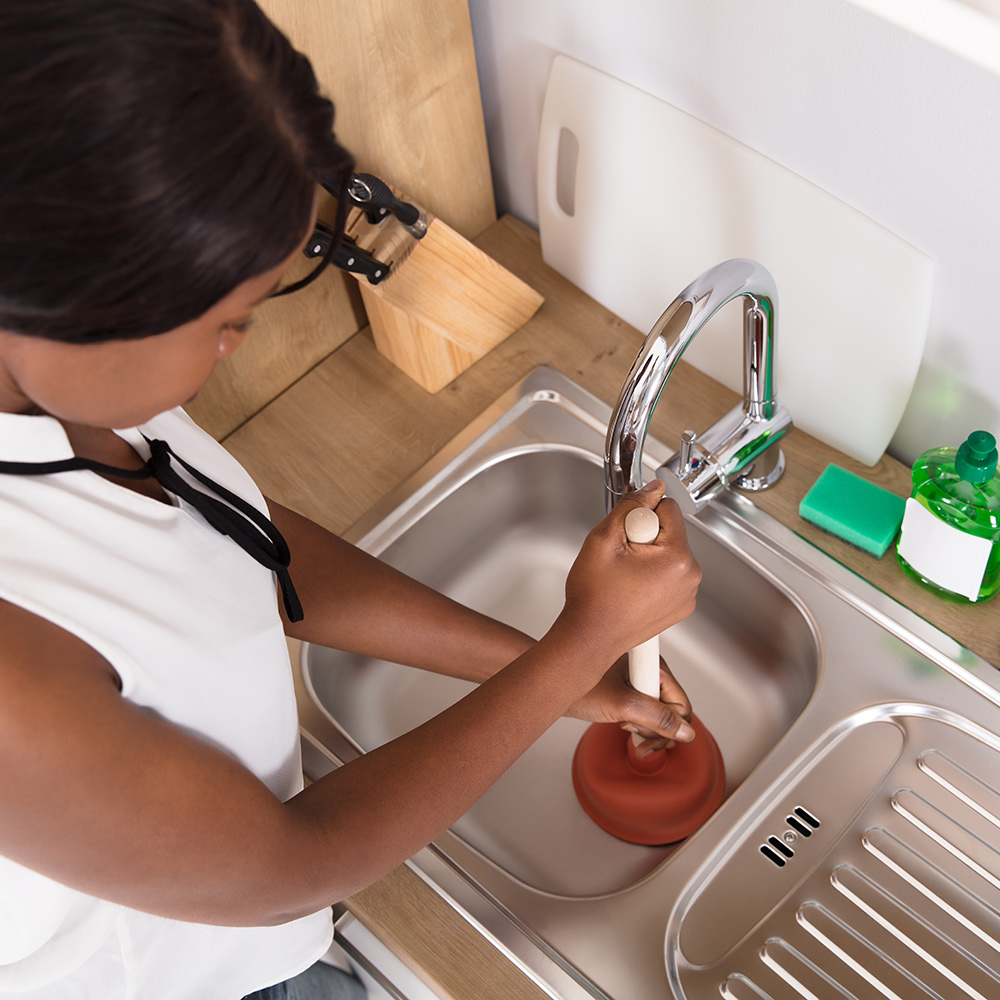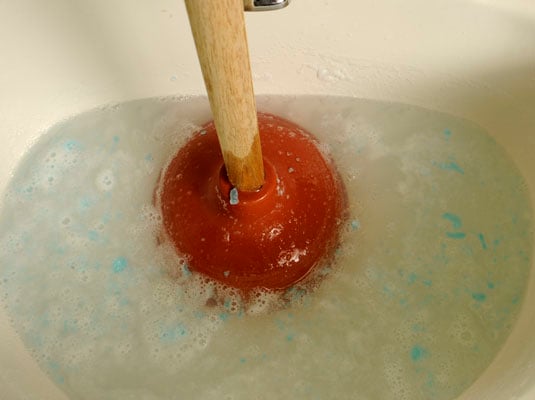The author is making several good points on Here's How to Correctly Use a Toilet Plunger as a whole in this post beneath.

Introduction
Proper maintenance of household drains pipes is important for stopping clogs and guaranteeing smooth water flow. One of the trick devices in every home owner's toolkit is the bettor, together with various drainpipe cleansers developed to tackle persistent blockages efficiently. This article discovers how to make use of plungers and drain cleansers effectively to maintain your drains streaming freely.
Area 1: Understanding Bettors
Sorts of Plungers
There are a number of sorts of plungers readily available, each designed for different sorts of drains and blocks. One of the most common types consist of cup bettors, flange bettors, and accordion plungers.
Exactly How Plungers Job
Bettors work on the principle of producing stress and suction to displace clogs. When correctly used over a drainpipe, they develop a vacuum cleaner that can pull out debris or separate obstructions.
Picking the Right Plunger
Selecting the ideal bettor depends upon the type of drainpipe and the nature of the clog. Cup bettors are excellent for sinks and bathtubs, while flange plungers are much better fit for bathrooms because of their style.
Common Errors with Bettors
Preventing these errors guarantees effective plunging: inappropriate seal around the drainpipe, insufficient pressure, and not clearing bordering debris.
Section 2: Utilizing Plungers Efficiently
Prep work
Before diving, guarantee the bettor covers the drain entirely and forms a limited seal. Clear any visible particles around the drain opening.
Strategy
Begin with mild plunging activities to build suction. Boost stress slowly, making use of a stable rhythm. Repeat as needed until the drain gets rid of.
Troubleshooting Tips
If plunging does not function, attempt adjusting the seal, applying oil jelly for a far better seal, or using a different kind of bettor.
Area 3: Recognizing Drain Cleansers
Sorts Of Drain Cleaning Company
Drain cleaners can be chemical or chemical. Chemical cleaners use strong chemicals to dissolve clogs, while enzymatic cleansers use all-natural enzymes to break down organic matter.
How Drain Cleansers Job
Chemical cleansers respond with blockages to dissolve them, while chemical cleaners break down natural materials like hair and oil without hurting pipes.
Security Factors to consider
Always use handwear covers and eye protection when utilizing chemical drainpipe cleansers. Make sure ample ventilation and follow maker guidelines carefully.
Eco-Friendly Alternatives
Think about utilizing vinegar and cooking soft drink or enzyme-based cleansers for green alternatives that are safer for pipelines and the setting.
Area 4: Making Use Of Drainpipe Cleansers Efficiently
Application Techniques
Pour chemical cleansers straight into the drain opening. Enable them to benefit the recommended time before flushing with warm water. Chemical cleaners ought to sit over night.
Preventative measures
Avoid mixing different sorts of cleansers, as this can create hazardous fumes. Never utilize chemical cleaners in conjunction with a plunger, as spilling can happen.
Managing Stubborn Clogs
For persistent clogs, think about utilizing a plumbing serpent or calling a professional plumbing professional to avoid damage to pipes.
Final thought
In conclusion, understanding just how to utilize bettors and drain cleaners successfully is essential for maintaining healthy plumbing systems. By choosing the right tools and techniques, property owners can tackle minor clogs and prevent major pipes problems down the line.
How To Properly Use A Plumbing Snake To Clear Drains
When any drain clogs in our home arise, we tend to gravitate toward the plunger and little else. In cases where the plunger and its vacuum-created pressure are not able to clear clogs, many immediately move to harmful chemicals or simply call their plumber to fix the issue.
we’re happy to help with all drain cleaning needs and concerns. This includes informing you on a few other home remedies you may have at your disposal for minor to moderate clogs, one of which is the use of a plumbing snake. Many people have never used one of these before – let’s go over the steps to take when your drain clogs and you have a plumbing snake available.
Attempt Plunger Use
The first step here, as we noted above, should indeed be to grab your plunger when you notice a drain clog and attempt to resolve it this way. If you’re unsure how to use a particular type of plunger, our plumbers can answer any questions you have. If this doesn’t do the trick, however, you move on to the snake.
Locate And Prepare Snake
A plumbing snake is a metal or plastic device that’s generally about a quarter of an inch thick. It’s design with significant extensions, meant to reach down into your clogged drain and push the clog out. Snakes also contain drain augers that will latch onto and push stubborn blockages.
If your plunger doesn’t clear a clog, locate your snake and bring it to the drain in question. We also recommend keeping a bucket nearby to collect the clog once you pull it out, plus we’d advise wearing goggles and possibly protective gloves.
Feed Snake
Once you’re ready to go, feed the snake slowly down the drain, using the crank device it comes with to keep it moving until it finds the clog. Once this happens, much of the clog will be latched onto the coil so you can pull it out, while the rest will simply break up and flow downward.
Detach Debris
Remove the snake slowly from the drain, and once you’ve done so, pick off any debris that’s stuck to the coil. This is another area where wearing gloves is a must.
Flush Drain
Finally, take a few minutes to ensure the snake has done its job correctly. If you’ve been using it on a toilet, flush the toilet a couple times and make sure everything flows well. If you’ve used it on a different drain, flush it with some room temperature water.
https://www.mybuddytheplumber.com/blog/how-to-properly-use-a-plumbing-snake-to-clear-drains/

Application Techniques
Pour chemical cleansers straight into the drain opening. Enable them to benefit the recommended time before flushing with warm water. Chemical cleaners ought to sit over night.
Preventative measures
Avoid mixing different sorts of cleansers, as this can create hazardous fumes. Never utilize chemical cleaners in conjunction with a plunger, as spilling can happen.
Managing Stubborn Clogs
For persistent clogs, think about utilizing a plumbing serpent or calling a professional plumbing professional to avoid damage to pipes.
Final thought
In conclusion, understanding just how to utilize bettors and drain cleaners successfully is essential for maintaining healthy plumbing systems. By choosing the right tools and techniques, property owners can tackle minor clogs and prevent major pipes problems down the line.
How To Properly Use A Plumbing Snake To Clear Drains
When any drain clogs in our home arise, we tend to gravitate toward the plunger and little else. In cases where the plunger and its vacuum-created pressure are not able to clear clogs, many immediately move to harmful chemicals or simply call their plumber to fix the issue.
we’re happy to help with all drain cleaning needs and concerns. This includes informing you on a few other home remedies you may have at your disposal for minor to moderate clogs, one of which is the use of a plumbing snake. Many people have never used one of these before – let’s go over the steps to take when your drain clogs and you have a plumbing snake available.
Attempt Plunger Use
The first step here, as we noted above, should indeed be to grab your plunger when you notice a drain clog and attempt to resolve it this way. If you’re unsure how to use a particular type of plunger, our plumbers can answer any questions you have. If this doesn’t do the trick, however, you move on to the snake.
Locate And Prepare Snake
A plumbing snake is a metal or plastic device that’s generally about a quarter of an inch thick. It’s design with significant extensions, meant to reach down into your clogged drain and push the clog out. Snakes also contain drain augers that will latch onto and push stubborn blockages.
If your plunger doesn’t clear a clog, locate your snake and bring it to the drain in question. We also recommend keeping a bucket nearby to collect the clog once you pull it out, plus we’d advise wearing goggles and possibly protective gloves.
Feed Snake
Once you’re ready to go, feed the snake slowly down the drain, using the crank device it comes with to keep it moving until it finds the clog. Once this happens, much of the clog will be latched onto the coil so you can pull it out, while the rest will simply break up and flow downward.
Detach Debris
Remove the snake slowly from the drain, and once you’ve done so, pick off any debris that’s stuck to the coil. This is another area where wearing gloves is a must.
Flush Drain
Finally, take a few minutes to ensure the snake has done its job correctly. If you’ve been using it on a toilet, flush the toilet a couple times and make sure everything flows well. If you’ve used it on a different drain, flush it with some room temperature water.
https://www.mybuddytheplumber.com/blog/how-to-properly-use-a-plumbing-snake-to-clear-drains/

I was shown that editorial about from an acquaintance on our other web blog. Are you aware of another individual who is truly interested in How to Use a Plunger to Unclog a Toilet or Drain? Be sure share it. I recognize the value of reading our article about Here's How to Correctly Use a Toilet Plunger.
Call Today